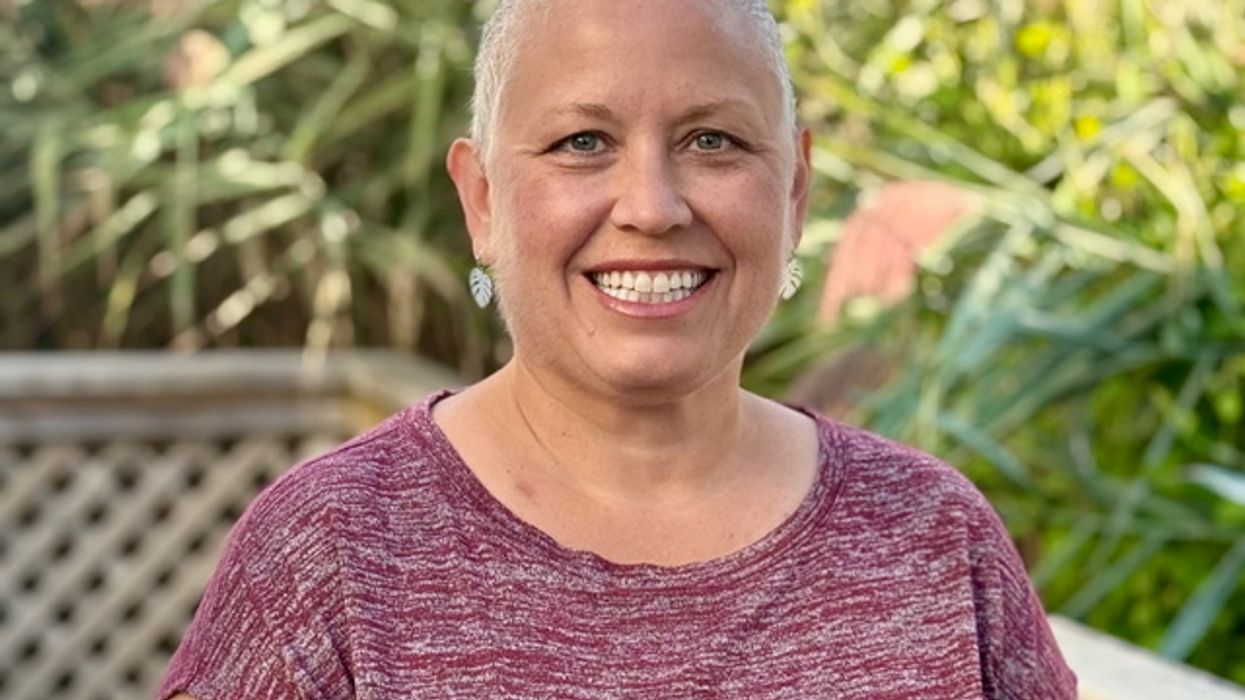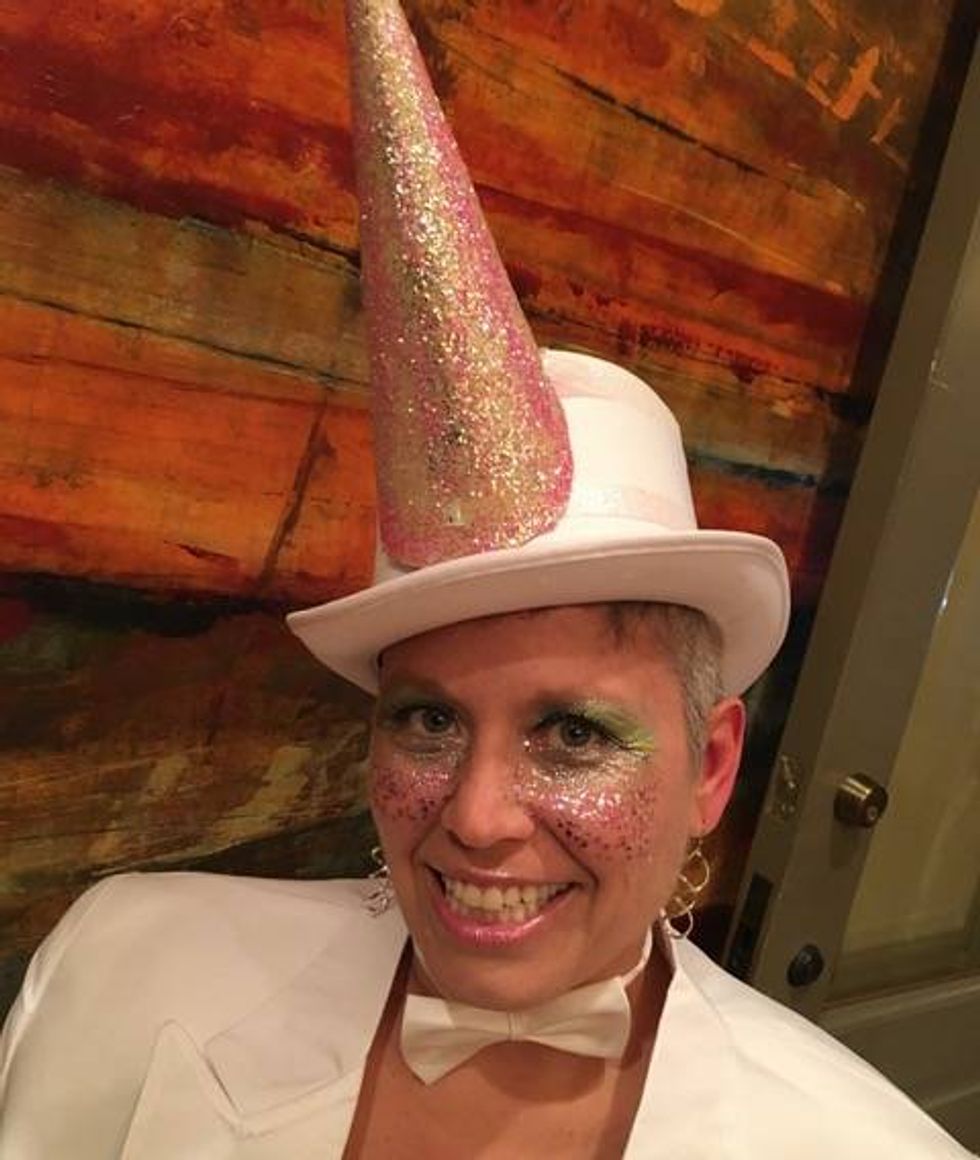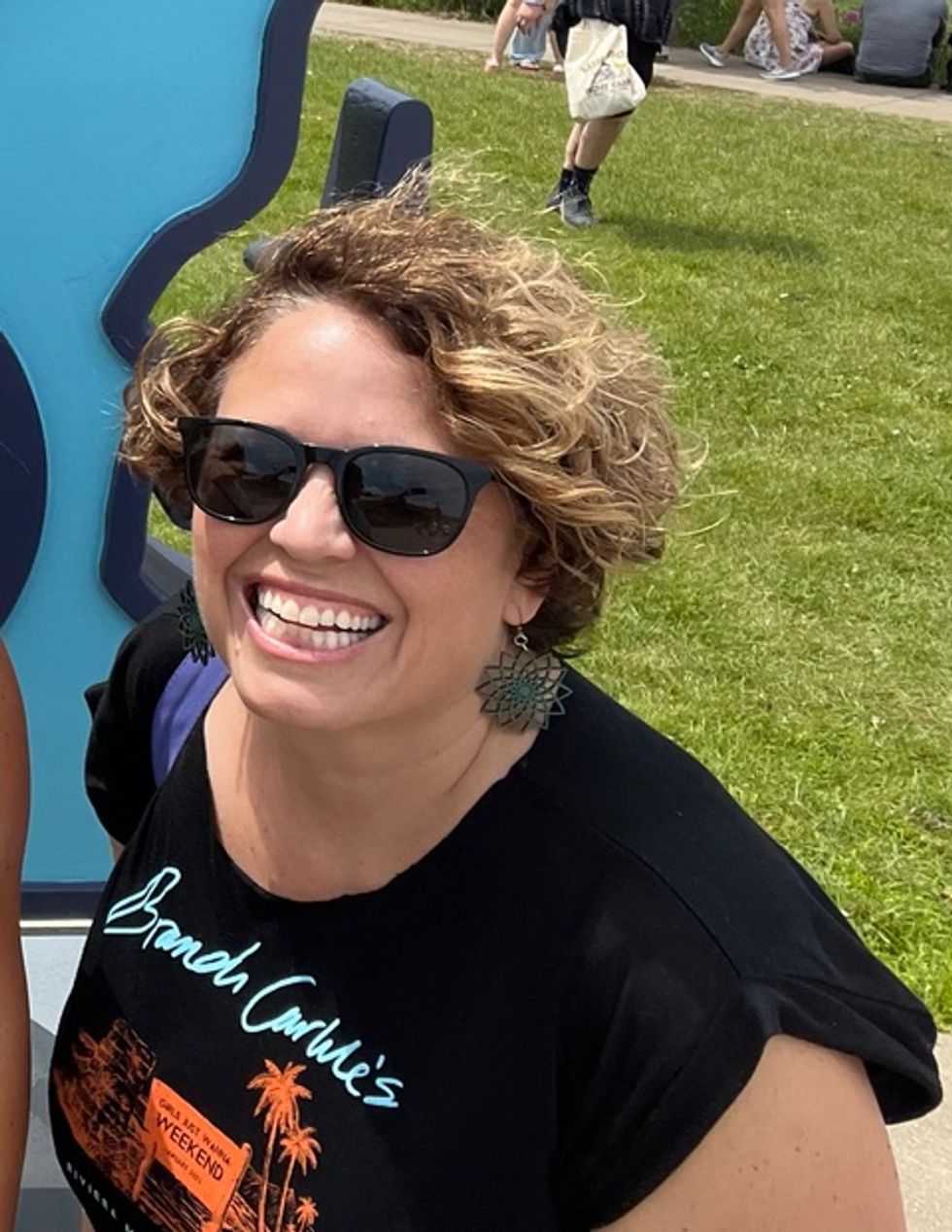
Cancer is a wake-up call. I answered it in the fall of 2018 when I received a shocking ovarian cancer diagnosis at the age of 45. I was stage 2a and had a successful debulking surgery and chemotherapy during the spring of 2019. Then I set about changing almost everything! I relocated from the East Coast to the Midwest to be closer to my friends and family. I began and ended a relationship, changed jobs and started Pilates and TRX classes. I finally redecorated my house, something that was long overdue. I took the bucket list trips I had always dreamed about. I even threw myself a month-long 50th birthday party on the shore of Lake Michigan.
And it wasn’t all Instagram-worthy moments. After cancer, I pushed past my fear of failure and started writing. I took classes to learn playwriting and performed at public storytelling events. I worked a 12-step program for Adult Children of Alcoholics and Dysfunctional Families. I wanted to break patterns that dogged me since childhood.
You see, I’d seen the statistics. I did not like the term « progression-free survival » — I thought remission was still a thing. But I’d seen that the median was 18.4 months to live without cancer progressing after diagnosis. I’d had 1,800 days. I was a unicorn, and I was determined not to take a moment for granted. As they say, most people overestimate what they can do in a year and underestimate what they can do in 10 years. I was living my best life. I had slammed the phone down and hung up on cancer.
 Annie, 2019
Annie, 2019
I sensed something was wrong in March 2024. I was determined not to miss the signs this time around. I noted a sort of phantom pain that came and went on my left side. Every time I walked past a mirror, I stopped to examine my midsection. The main blood test for a tumor marker associated with ovarian cancer is called CA125. I had been receiving a 4 or 5 (essentially undetectable) since initial treatment. I messaged my care team, telling them I was anxious and unable to shake the fear that I was missing early signs of bloat. In April, my CA125 was 7. I told myself to stop fixating. Surely cancer had misdialed.
I was cautiously optimistic going into my July blood draw. It was the weekend of a musical festival. Friends that I’d started taking those bucket list trips with had flown into town. Before the blood draw, I asked my medical team, What number should concern us? They said that so long as I stayed below 12, we wouldn’t sound the alarm. I got a 14. I was sure this was my last music festival.
 Annie, at a music festival, 2024.
Annie, at a music festival, 2024.
I was then scheduled for a CT scan. The results were totally inconclusive. My joy was short-lived. I understood what my nurse practitioner meant when she said, « Sometimes it takes a while for these things to develop. » I lived in this awkward state of « inconclusive » for a couple of months. Every conversation was difficult to navigate. How much should I share? Would I add unnecessary stress to their lives? Would their emotional response stress me out? When my number went down one point in September, I celebrated like I’d won the lottery. By December, my CA125 was 19. A second set of scans confirmed what I’d known for nine months — my cancer was back. Initial diagnosis felt like a kick in the butt, a nudge from the universe. Recurrence felt like a kick in the teeth. A sucker punch to the gut. An absolutely shattered heart and broken spirit.
It was a sort of miracle that I’d caught my own cancer recurrence so early. A sign of how much I’d grown since the last go around, when I missed glaring, blinking neon signs. One morning, before it was confirmed, but when my deep knowing was sure, I asked myself what I still regretted in my life. One item rose to the surface immediately: I had not made total peace with my body. I immediately got with my therapist, who referred me to a body image group. Over the course of many weeks, with the help of tools and support, I gradually shifted my feelings. I could not go into treatment at war with myself.
My amazing friends, family and coworkers once again rallied to support me. I had a laparoscopic surgery and then started another six-chemo regimen. It was so much harder the second time around. Was it age? Or a trauma response to having to endure icing during treatment (I really hate the icing!)? A slow realization was dawning — this is now a chronic condition. I was ashamed. I was being stripped of my unicorn title.
The optimism and faith I had in the first go-round simply were not there. I was dogged daily by existential grief. Even the smallest decisions were difficult. I’m extremely extroverted and usually most comfortable surrounded by people. But this time I felt like a wounded animal. I wanted to be alone and hide in my bed. I could not summon a positive frame of mind for my caregivers. I also struggled to receive their positive intentions.
Things got worse and worse through the first four treatments. Finally, in cycle five, I started to see the light at the end of the tunnel. I had my last treatment the day after my 52nd birthday. I’d found some of my mojo. In a totally unexpected twist of fate, I had also met someone just before my December scans. She was also a cancer survivor, and she quite literally pulled me across the finish line.
Since completing treatment, I’m getting stronger and finding a new normal. I’m grateful to be on a PARP inhibitor, which I hope will extend my progression-free survival for a long time. (I’ve come around on this concept!) I am slowly seeing recurrence not as failure but as just a finer sieve that I’m once again shaking my life into. Cancer is clarifying. Only the most critical and meaningful things can get through. After recurrence, my relationship with cancer has changed. I’m unable to disconnect from it; we’re now in an ongoing dialogue. But I’m grateful that neither of us is spending much time these days talking about dying.
This educational resource was created with support from Merck.
Have your own Real Women, Real Stories you want to share? Let us know.
Our Real Women, Real Stories are the authentic experiences of real-life women. The views, opinions and experiences shared in these stories are not endorsed by HealthyWomen and do not necessarily reflect the official policy or position of HealthyWomen.
